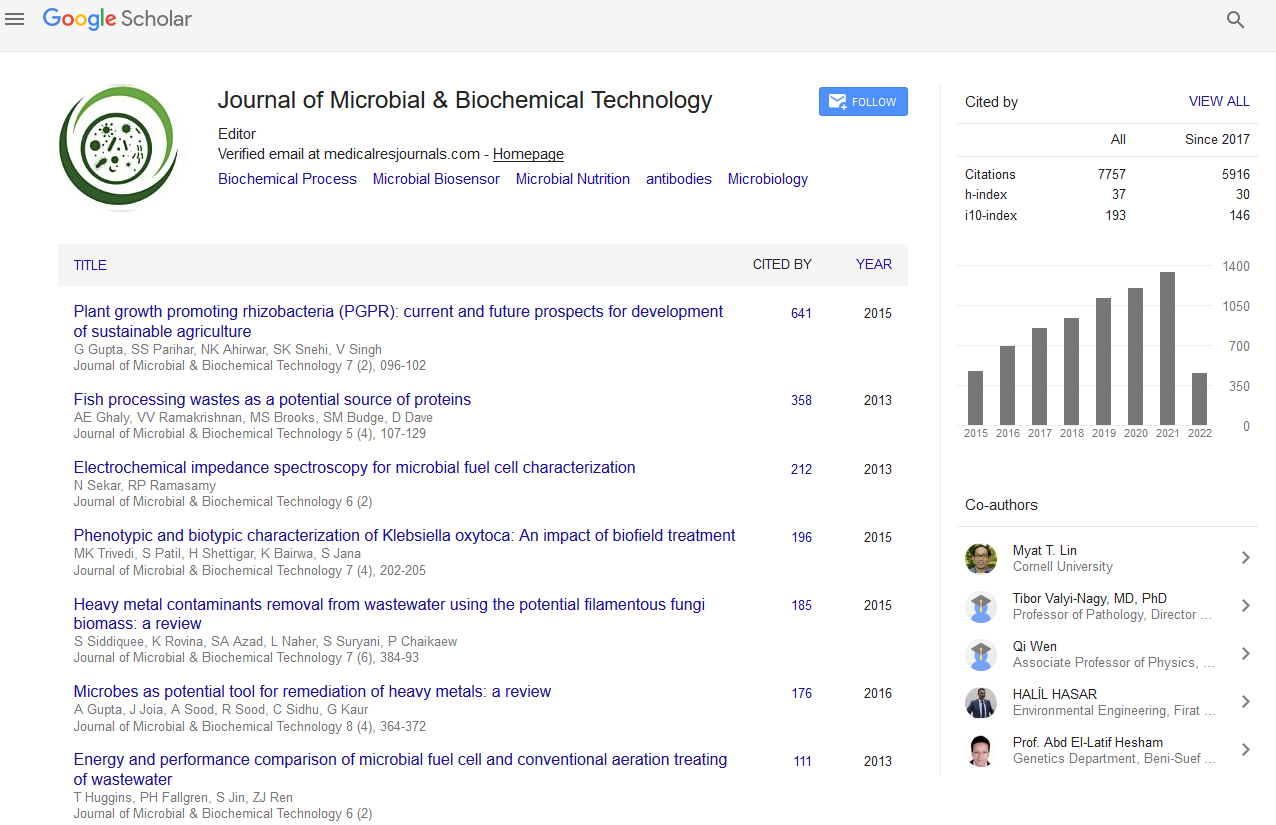PMC/PubMed Indexed Articles
Indexed In
- Academic Journals Database
- Genamics JournalSeek
- Academic Keys
- JournalTOCs
- China National Knowledge Infrastructure (CNKI)
- Scimago
- Access to Global Online Research in Agriculture (AGORA)
- Electronic Journals Library
- RefSeek
- Directory of Research Journal Indexing (DRJI)
- Hamdard University
- EBSCO A-Z
- OCLC- WorldCat
- SWB online catalog
- Virtual Library of Biology (vifabio)
- Publons
- MIAR
- University Grants Commission
- Geneva Foundation for Medical Education and Research
- Euro Pub
- Google Scholar
Useful Links
Share This Page
Journal Flyer

Open Access Journals
- Agri and Aquaculture
- Biochemistry
- Bioinformatics & Systems Biology
- Business & Management
- Chemistry
- Clinical Sciences
- Engineering
- Food & Nutrition
- General Science
- Genetics & Molecular Biology
- Immunology & Microbiology
- Medical Sciences
- Neuroscience & Psychology
- Nursing & Health Care
- Pharmaceutical Sciences
The rhizosphere microbiome of cork oak
CO-ORGANIZED EVENT: International Conference on Chronic Diseases & 6th International Conference on Microbial Physiology and Genomics
August 31-September 01, 2017 Brussels, Belgium
Diogo Pinho, Cristina Barroso, Hugo Froufe, Conceicao Santos Silva and Conceicao Egas
Genoinseq, Portugal
Associação de Produtores Florestais do Concelho de Coruche e Limítrofes, Portugal
Posters & Accepted Abstracts: J Microb Biochem Technol
Abstract:
Forests are a source of energy, materials and food and they play an important role in carbon storage, biodiversity conservation and climate regulation. Although resilient in surpassing disturbance episodes, cork oak forests have been declining due to the complex combination of biotic and abiotic factors. This finding compromises the socioeconomic value of cork as well as the unique biodiversity harbored in Mediterranean forests. From leaves to roots, trees host a high diversity of microbial communities. Particularly, the rhizosphere microbiome has a key role in the biogeochemical cycles, nutrition and tree health. However, little is known about the microbiome that inhabits the cork oak roots compared to other tree species. The RhizoCork project aims to characterize the rhizosphere microbiome of cork oak to unravel important microorganisms for tree health, growth and productivity. In this ongoing project, rhizosphere soil samples were already collected from healthy and declined cork oak trees and high-throughput sequencing has been used to characterize both cultivable and uncultivable bacteria and fungi. The results showed that healthy and declined trees had significantly distinct bacterial and fungal communities, supporting the hypothesis that different tree health status harbor different microorganisms. The results motivate further studies to understand the microbiological factor associated with forest health status. The RhizoCork project is focused on developing new forest management strategies that comprise a microbiological component to overcome the factors that trigger forest decline.


